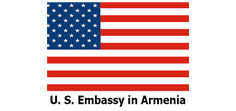During his visit to Los Angeles, Prime Minister Nikol Pashinyan addressed the resignation statement of former National Security Service (NSS) Director Artur Vanetsyan.
“… Mr. Vanetsyan spoke in his statement about the honor of the officer, and the fact that he, being de jure director of the National Security Service, is actually making a statement against his supreme commander, and being the head of a body subordinate to the prime minister, makes a statement against the Supreme Commander. There is no greater disrespect to the officer …” Pashinyan said.
In response to this statement, Artur Vanetsyan said on September 23: “It is logical that those who do not have military knowledge and have a superficial understanding of the mentality of the military and their debt to the homeland cannot know about the honor of the officer and the importance of shoulder straps. By the way, according to the RA Constitution, the Prime Minister is not the supreme commander in a non-war situation. I’m sorry it went so far … “
Fip.am tried to find out whether, as the prime minister notes, the NSS director made a statement against the country’s supreme commander, and in general, what does the country’s supreme commander mean?
Thus, according to the previous Constitution adopted in 2005, the president was commander-in-chief of the Armed Forces. But with the amendments in 2015, that term has changed its meaning somewhat. Article 155 (4) of the current Constitution states that the Prime Minister is the supreme commander of the Armed Forces during the war. According to Article 16 of the Law on Defense, the Armed Forces are headed by the Minister of Defense, and the immediate commander is the Chief of General Staff. During a non-war period, the Chief of the General Staff of the Armed Forces is subject to the Minister of Defense, and during the war to the Commander-in-Chief, that is, to the Prime Minister.
Nikol Pashinyan’s statement that “… he (Artur Vanetsyan-ed.), being de jure director of the National Security Service, is actually making a statement against his supreme commander” in fact does not correspond to the reality.
However, another factor is noteworthy here. Thus, the former director of the NSS has also caused misinterpretation with his statement that the prime minister is not a commander-in-chief during a non-war situation, because regardless of the war or non-war situation, the NSS remains a structure subject to the prime minister.
Thus, according to the Law on National Security Authorities, national security authorities are an integral part of the security system of the Republic of Armenia and, within their competence, ensure the security of individuals, society and the state.
The unified system of national security authorities consists of the authorized body of the state administration of national security of the Republic of Armenia, regional bodies subordinate to it, border troops, training centers, special units and other units. By law, the NSS is a body subordinate to the Prime Minister, and its immediate head is the Prime Minister.
The NSS is therefore not part of the Armed Forces and the use of the term “supreme commander” in this context is inappropriate. Pashinyan may have used the term in a figurative sense, as the NSS leader is subject to the prime minister, but the prime minister’s words have nevertheless caused misinterpretations.

 FACTOMETER
FACTOMETER









